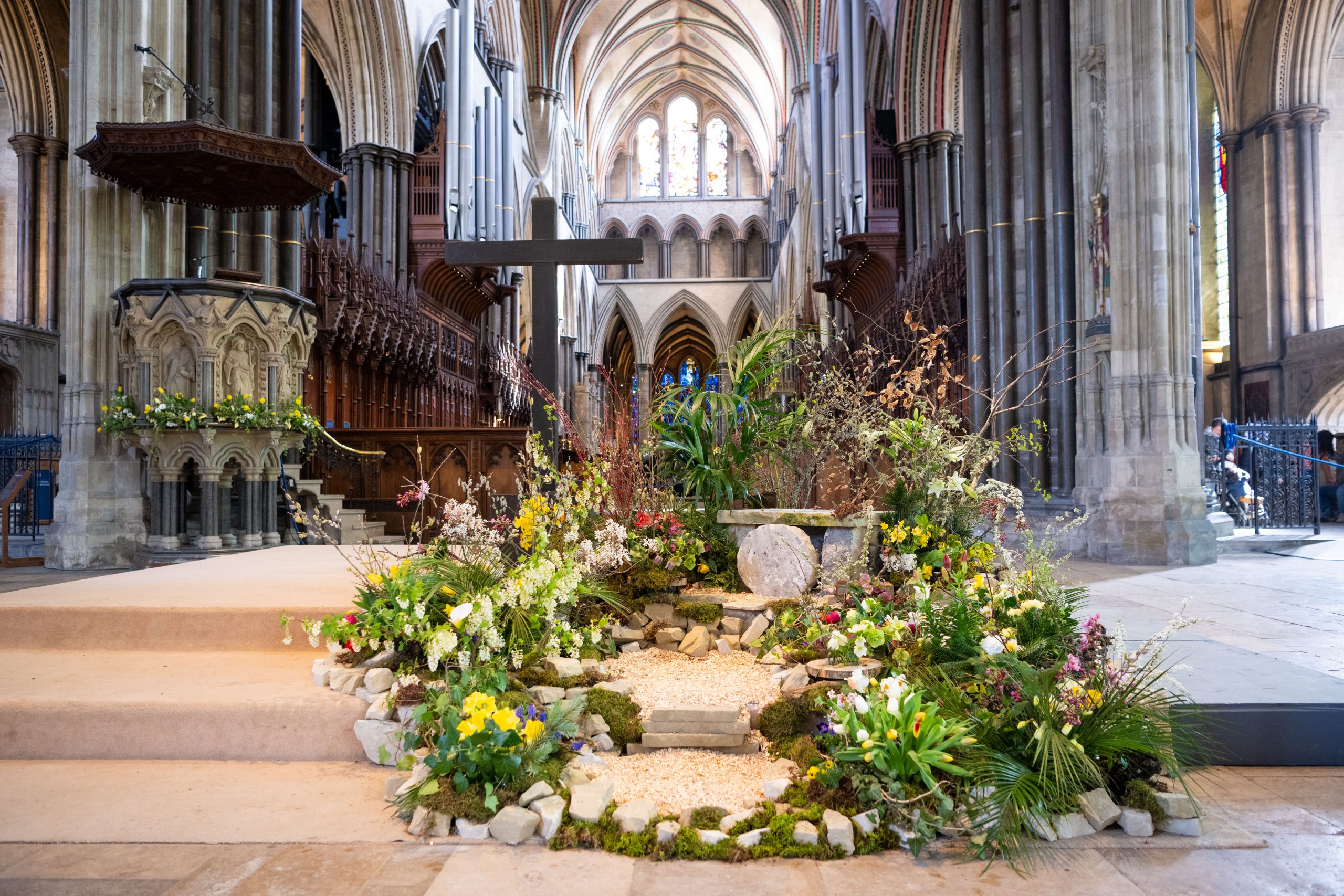According to Plan

Second Sunday of Easter, 16th April 2023
(Acts 2.14a, 22-32; John 20.19-end)
According to the account given by Luke in the Acts of the Apostles, and which we have just heard, 40 days after the resurrection of Christ, a confident and remarkably articulate St Peter stood in front of a puzzled crowd in Jerusalem and said this: ‘….this man, handed over to you according to the definite plan and foreknowledge of God, you crucified and killed….’
That seems to me far too neat, too confident, too rhetorical. There is no suggestion that the disciples had seriously anticipated the disaster they had just seen unfolding: when people came for their leader, they ran away, humiliated and ashamed. Everything in the narratives of the resurrection and the various encounters with the risen Christ – everything suggests shock, fear, confusion, and disjointedness.
Disjointedness is a fair description of the narratives of the resurrection which occur in the New Testament. Look at the different accounts and you’ll see many different answers to questions like these: which women went to the tomb?; who said what to whom?; who was the first to meet the newly-risen Jesus?; what did Jesus say to them?; how many times was he seen?; at what point was he seen no longer? There is no overall coherent account which is common to Matthew, Mark, Luke, John, or St Paul, a man who writes at length about the resurrection of Christ and confidently asserts that he himself had a true experience of his resurrection – even though this must have been months or years after (according to Matthew and Luke at least) Jesus ascended to heaven and was seen no more.
I suggest you remember that sense of confusion and disjointedness rather than the implausible picture of the disciples smartly spotting the definite plan and foreknowledge of God in what they’d experienced. I don’t think they understood it intellectually; they and those to whom they passed on their news, found it immensely difficult to explain.
But if they couldn’t grasp this with their minds, they certainly could with their hearts and lives. They wouldn’t shut up about it, and in the months and years after the execution of Jesus they were far more confident and hopeful than they ever were when they followed him in person. Their lives were transformed, and they were even willing to endure danger and persecution themselves.
Somehow they grasped that the day of resurrection had brought not just a revivified victim, but a new order. This wasn’t just a happy reunion, but a life which changed everything. The second thing Jesus says to them is ‘As the Father has sent me, so I send you.’ His mission was now their mission.
We humans like plan and order and pattern. There is comfort in finding things as expected, reliable. According to John, on Easter evening the disciples met behind locked doors, because of fear; and the first thing Jesus says to them when he appears is ‘Peace be with you.’ And then he repeats it: they were scared stiff. In later years, as they tried to understand all this, they imposed order and pattern on what had happened – it was all according to the plan, all known in advance. If you read the Old Testament properly you could see all this foretold, and you could quote the historic prophets to prove it.
Maybe. But such pattern as they found was retrospective; they couldn’t see it coming. And so too is much – maybe most – of life as we experience it. Whatever plans we impose or discern, they are mostly disrupted in practice. Stuff happens.
It’s much more helpful, and hopeful, to think of the resurrection of Christ, not as the smooth outworking of a master plan, but as the response of God to the facts of life: the disorders of creation, and the corruptions and viciousness of human living. God can take hold on what has been, and the harm that ensues, and turn it around. The agony and death of Jesus weren’t magicked away; the harm was done, they were real wounds, he died. But, as Peter goes on to say in Acts, ‘it was impossible for [Jesus] to be held in [death’s] power’. God, whom we struggle to describe, also cannot be constrained. God is the life-giver.
As the disciples grasped, what God had shown them in the resurrection he could do for them, and for us. Not maybe the kind of neat plan they might have liked, but the redemption of loss endured, and of harms done.
Alleluia, Christ is risen.




